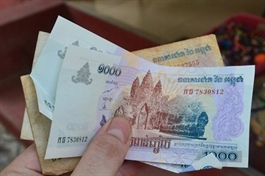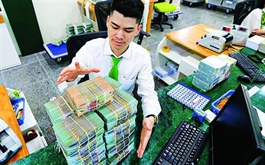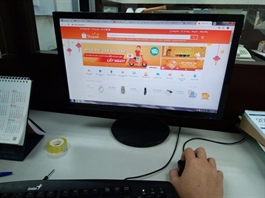Vietnam remains clear of US currency manipulator watch list
Vietnam remains clear of US currency manipulator watch list
The U.S. has not placed Vietnam on the most recent version of their list of currency manipulating countries, according to the U.S. Treasury Department’s latest report on 'Macroeconomic and Foreign Exchange Policies of Major U.S. Trading Partners.'

In its semi-annual currency report to the U.S. Congress on June 17, the Treasury placed seven economies, namely China, Germany, Malaysia, Singapore, South Korea, Switzerland, and Taiwan, on its 'monitoring list' as it suspects that they have taken measures to devalue their currencies against the U.S. dollar.
Meanwhile, Vietnam was removed from the list in April 2021.
Except for the seven economies listed above, the Treasury concluded that no other major U.S. trading partners manipulated currencies in the period from January to December 2022.
In making its latest report, the Treasury Department continued applying three assessment criteria, including a trade surplus with the U.S., a current account surplus, and persistent and one-sided intervention in the foreign currency market, according to the State Bank of Vietnam (SBV).
During this period, Vietnam exceeded the threshold for only one of the three criteria – a trade surplus with the U.S. – so it was not included in the watch list.
The Treasury once put Vietnam on its monitoring list in December 2020 but it removed the Southeast Asian country from the list in April 2021, as the department found that there was not enough evidence that the nation had committed currency manipulation, based on the Omnibus Trade and Competition Act 1988.
To be labeled a manipulator, economies must at least have a US$20 billion-plus bilateral trade surplus with the U.S., foreign currency intervention exceeding two percent of gross domestic product (GDP), and a global current account surplus exceeding two percent of GDP, Reuters reported.
According to the SBV, the Treasury continued to highly appreciate Vietnam’s monetary and exchange rate management policies, which have helped maintain the stability of the financial and monetary markets as the world has been facing many difficulties and challenges.
The central bank emphasized that it will continue to control the exchange rates proactively, flexibly, and in line with the development level of the foreign currency market and economic factors, never using exchange rate policies to gain unfair trade competitive advantages.
The SBV said it has made efforts to better control inflation, stabilize the macro-economy, and ensure security for the banking and credit systems.
It will continue to coordinate with relevant agencies from the U.S. side on issues of concern to the U.S. in the spirit of goodwill and cooperation.





















